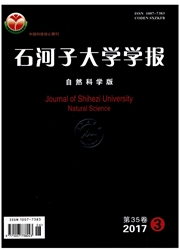

 中文摘要:
中文摘要:
探讨大鼠脑短暂性缺血后内源性神经营养因子NGF、BDNF和NT-3在海马组织中的变化规律,为神经损伤的修复治疗提供参考数据。本研究采用夹闭双侧颈总动脉的方法制作TGI大鼠模型,将大鼠随机分为术后3,7、14、21d以及假手术组5组,采用RT-PCR法检测大鼠海马组织中NGF、BDNF和NT-3mRNA表达水平的变化。研究结果表明3种神经营养因子在全脑短暂性缺血海马组织中出现表达下降趋势,其中以NGF mRNA的表达量下降最为显著(P〈0.01)且具有快速恢复趋势,到损伤后21d NGF已上升至伤后3d水平。结果显示,这种变化规律提示短暂性脑缺血后3种神经营养因子表达水平的下降加剧了缺血再灌注对神经元的损害,其中NGF可能是脑缺血后发挥神经损伤修复的主要因子,有助于神经损伤的修复作用。
 英文摘要:
英文摘要:
This study was aimed to investigate tile variation of endogenous neurotrophic factors(NGF,BDNF and NT-3)in rats hippocampus tissue after transient cerebral ischemic(TGI)injury,and provide sufficient reference data for the repair of neuron injury. The model of TGI was established by occluding the double common carotid arteries(CCA) for 15 min in SD rats. RT-PCR was used to detect the change of NGF mRNA, BDNF mRNA and NT-3 mRNA at different time points(3,7,14,21 d)and shame group in rats'hippocampus tissue. The result indicated that all expression of neurotrophic factors were descended after TGI, the level of NGF mRNA expression notably declined(P〈0.01)and then quickly recovered to 3 day's level. These changes suggested that the descent of three neurotrophic factors aggravated the neuron damage after isehemia reperfusion, and NGF might be an important factor for repairing neuron injury.
 同期刊论文项目
同期刊论文项目
 同项目期刊论文
同项目期刊论文
 期刊信息
期刊信息
